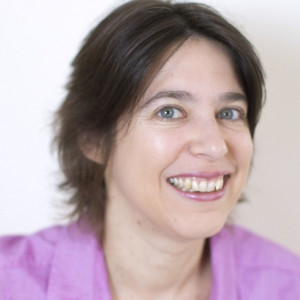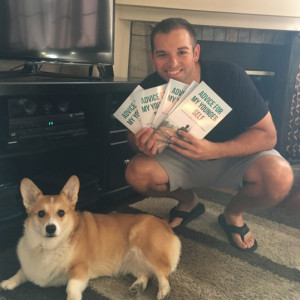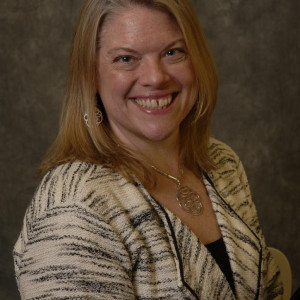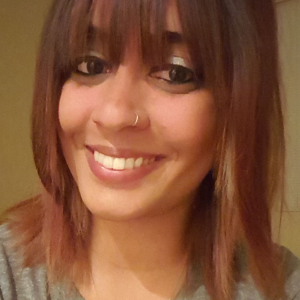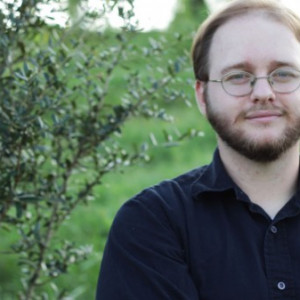How do you stay on task?
Interview with Alaina, a nonprofit program state director
Planning days and keeping to-do lists are my saving graces. I am currently trying a new version of a to-do list on two pages in my notebook where I list any follow-up items from the previous week, tasks for the week, and a day by day breakdown.
Believe it or not, keeping my refrigerator stocked with lunch options and snacks for the week keeps me on track for shorter lunch breaks and snacking throughout the day.
I also don’t waste time thinking through what I will eat for lunch. And because I work from home, I might cook a burger or make a salad for lunch and it’s easy to have the ingredients available to throw together and not waste time running to a fast-food restaurant and returning—it’s also very cost-efficient.
Taking breaks throughout the day is also important; getting up and walking around helps break the monotony of staring at a computer screen.
Sometimes I will walk around while taking phone calls using my headphones or Bluetooth, and since my dining room table is bar height, I can take notes while standing up.
It takes a minute to find your rhythm in a new remote position—hear how Alaina organizes her time to hit the ground running in a new remote work job.
Read full interview from Interview with Alaina, a nonprofit program state director.
Interview with Michelle, an organizer of digital nomad experiences
I make sure to turn off notifications to help me overcome distractions, but it is not always easy, haha!
A solo backpacking trip led to Michelle organizing co-travel experiences for digital nomads—hear how she manages working while traveling.
Read full interview from Interview with Michelle, an organizer of digital nomad experiences.
Interview with Taylor, a marketing director and intentional digital nomad
Headphones are helpful. I often don't play music, but the feeling of earbuds inside my ears is enough to switch my brain into focus mode. Plus, they keep people from distracting you.
Taylor shares how co-working spaces, digital nomadism, and work flexibility gave her the work environment she always wanted.
Read full interview from Interview with Taylor, a marketing director and intentional digital nomad.
Interview with Kay, an independent software consultant who found freedom in remote work
It really helps me to start my day with a plan.
When I start without one, the day drags on and often forget things. That's why I love to have a bunch of issues to solve for the next day. I stand up, get a coffee and can work right away.
Learn how Kay made the jump from full-time employee to full-time remote consultant
Read full interview from Interview with Kay, an independent software consultant who found freedom in remote work.
Interview with Pilar, director of Virtual Not Distant
I have been freelancing all my life, I am incredibly organized and self-motivated, and I love my work, I don't have anything magical that I do.
Hear about Pilar's flexible approach to managing Virtual Not Distant and the career-changing advice she received from a friend.
Read full interview from Interview with Pilar, director of Virtual Not Distant .
Interview with Michael about being an entrepreneur and freelancer
I used to struggle with productivity a lot but now I have so many projects with my business and clients that I have to be efficient.
The biggest productivity hack for me is planning the next day the night before, in order of what I will complete.
Each morning starts with a digital detox — 1 hour with my morning routine. This includes journaling, meditating, and reading. This helps start my day fresh and creative.
From there I workout and then I start my work. I always do the hardest tasks first thing when I am most creative and efficient.
If I'm really feeling lazy, usually toward the end of the week, I'll do tasks that don't require much energy — tax stuff, social media posting, etc. For the most part, I try to do the most important work from 7am-1pm.
I set a monthly income goal and work backward by thinking of how much I have guaranteed and what I can do to earn more. I try to maximize efficiency by planning out the month, week, and day in detail. Without specific goals, it's easy to slack off and not be as motivated. As I work at home I also have a no TV rule. I never watch TV before 7 pm to make sure I don't try to sit in front of the TV with my laptop multi-tasking (which rarely works).
Michael is an online entrepreneur, author, and freelance writer who specializes in self-improvement and personal finance.
Read full interview from Interview with Michael about being an entrepreneur and freelancer.
Interview with Pamela, a travel writer adjusting to freelancing
Honestly, this is an area that needs improvement. I’m easily distracted by a friend calling, jumping in to help others, and answering text messages.
Pamela is new to the world of freelancing. In this interview, she shares the ups and downs of adjusting to the gig economy.
Read full interview from Interview with Pamela, a travel writer adjusting to freelancing.
Interview with Chloe, a customer support freelancer and multi-project expert
I make a list at the beginning of each day with what I need to do and check them off as I finish them.
If I need to stay on a schedule of getting something done within a certain amount of time, I treat myself only once it has been completed and not before.
Chloe uses the flexibility of freelancing to her advantage—see how she successfully manages multiple projects at one time.
Read full interview from Interview with Chloe, a customer support freelancer and multi-project expert.
Interview with Andrew, a freelance writer who works remotely
One of my favorite productivity methods is the Pomodoro Technique. It’s a nifty trick where you divide your work time into intervals of productivity followed by a break. Most people like to divide their work into 25 minutes, then a 5 minute break, but I find that my focus gets too interrupted by just 25 minutes.
Instead I work for about an hour uninterrupted, then I take a break, usually for 15 minutes. This method usually gets a significant productivity out of me, in terms of words per hour, I usually am able to slam out 3,000 words in an hour if I’m going at that pace.
Putting the phone out of reach is another important trick. I use my timer, but when the timer is running I don’t touch the phone. I put it to the side where I can slightly see the clock running, that way I know how much time I have left to hit my target goal. It’s easy to just spend your day messing around on your phone, especially since you don’t have a boss to yell at you about wasting your time. Sometimes, when I’m working a job that doesn’t require a large output of words written, I’ll actually just put the phone somewhere else. Out of sight, out of mind.
My biggest method of staying productive involves working almost as soon as I wake up in the morning.
I find that my creative energies wane as the day (or night) go on, so the earlier I can get going, the more productive I am. Even if it’s just for an hour or two, I find that working right after I wake up will increase my productivity by a high margin. If I wait until later in the day, after I’ve expended a lot of energy on other things, I tend to be sluggish and not nearly as focused.
Andrew became a full-time freelance writer after experimenting with freelance marketplaces. After the first month, he was already earning more than his full-time job.
Read full interview from Interview with Andrew, a freelance writer who works remotely.
Interview with Deborah, a remote entrepreneur changing perceptions about remote work
By design, I generally enjoy my work, which means that it's not too difficult to stay on task. That said, when it's one of those times that my attention span is short, rather than force myself and not be very productive, I'll go away and come back to the task when I am ready to.
I may also give myself a deadline with a reward, i.e., work on this task solidly for an hour, and then I can do something I really want to do, ahem, Netflix hehehe!
Deborah has traveled the world sharing her research about the pros of remote work. See how she is helping companies and clients understand the importance of location independence.
Read full interview from Interview with Deborah, a remote entrepreneur changing perceptions about remote work.



